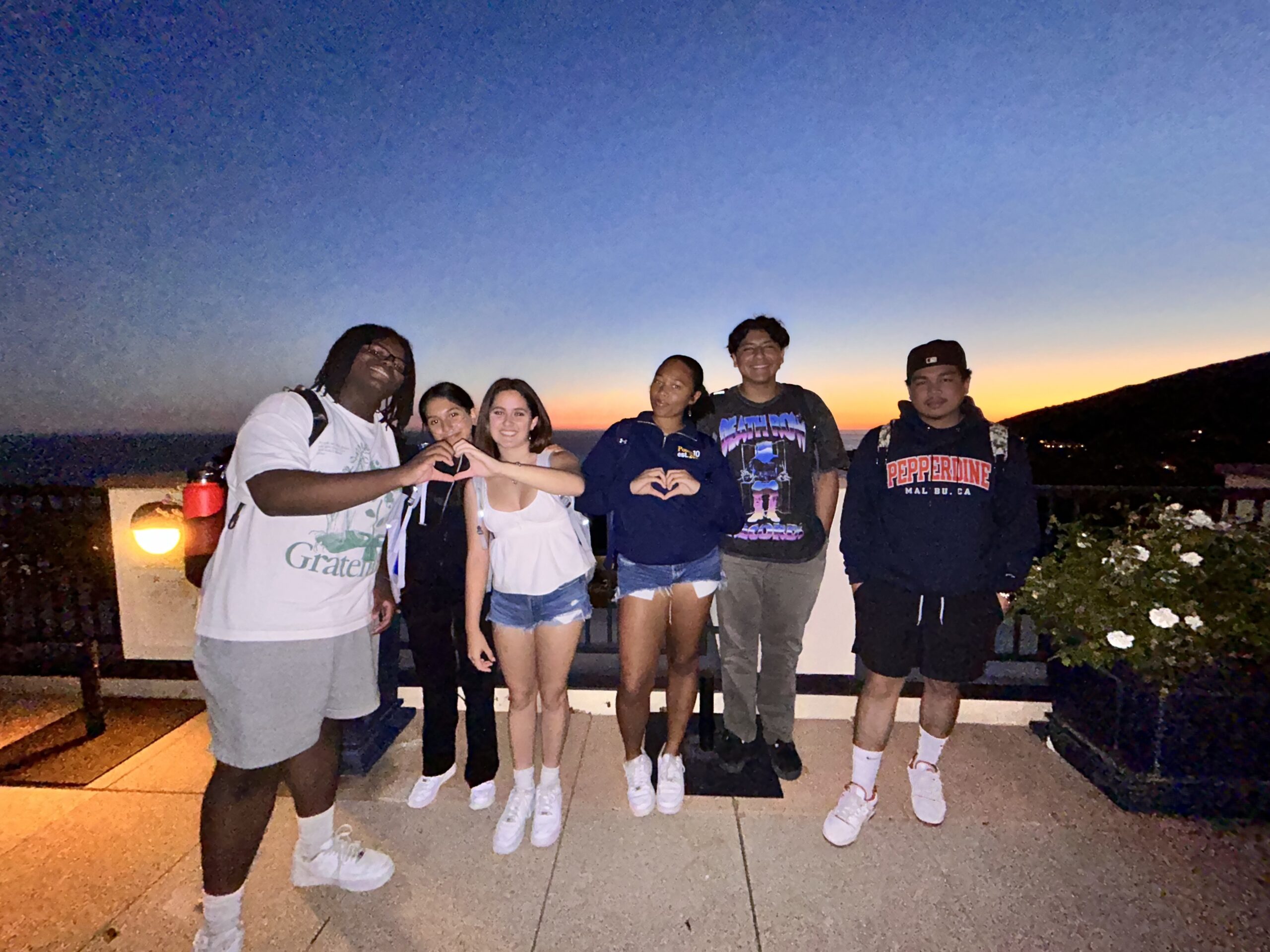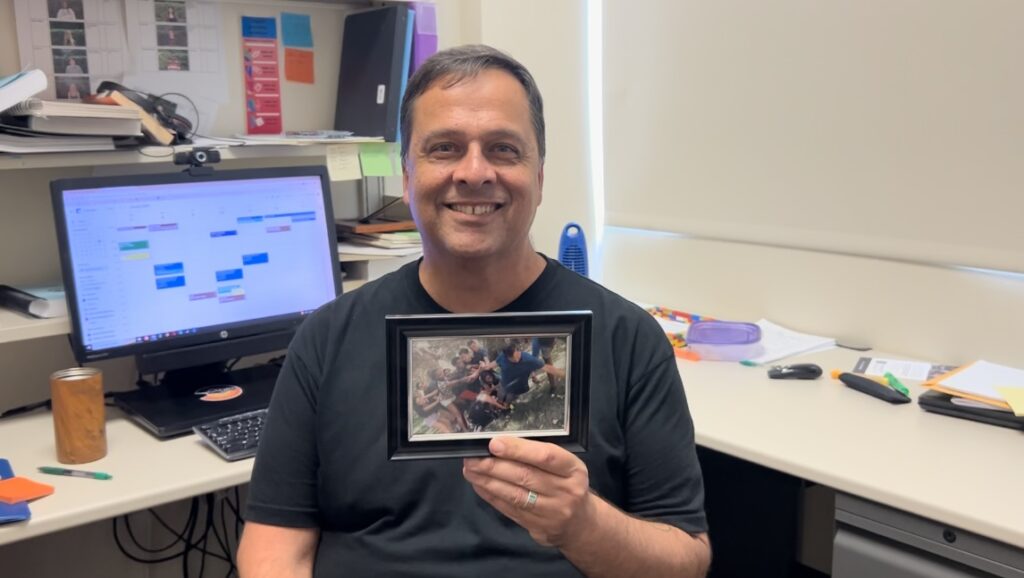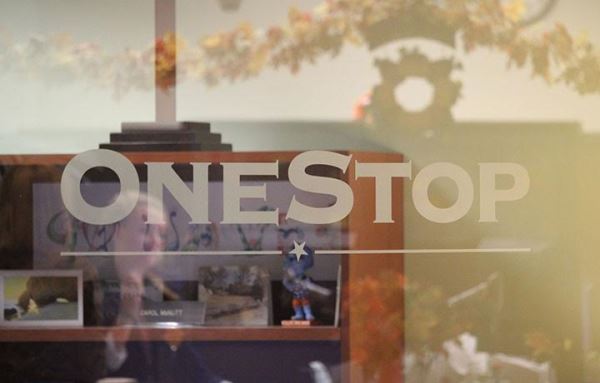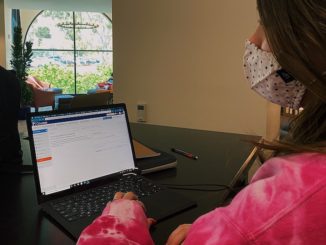
Posse 9, this year’s first-year Posse, has successfully transitioned to Pepperdine University.
The Posse Foundation is a merit-scholarship program that identifies high school students who may be overlooked by traditional metrics but show leadership potential. The Posse Foundation helps build future leaders through a sense of community, scholarship and fun, providing extensive support and resources to help their cohort of scholars succeed.
Lorenzo Alvardo, a Posse scholar and first-year mathematics major, said it amazed him that his new Posse family “fit like a puzzle.” Raquel Casillas, a Posse scholar and first-year political science and sociology major, agreed.
“It’s almost scary how good of a job they do because they not only have to pick us based on our accomplishments,” Casillas said. “But also choose us based on what we can bring to the table as a group.”
People at Pepperdine sometimes have false ideas about Posse scholars. Alumni and Posse advisers said the scholars have helped bring diverse perspectives to campus and enhanced the community by leading organizations all over campus.
“The Posse student for the last several years has had an incredible impact on the university,” said Steve Rouse, a psychology professor and former Posse advisor. “They make an impact because they all are natural leaders who get involved and make a substantial impact.”
Posse Foundation at Pepperdine
Deborah Bial founded the nonprofit Posse Foundation in 1989 to help students attend college. The first school Posse partnered with was the University of Vanderbilt, helping five students attend school, according to the Posse Foundation.
“Several years ago, there was a person who wanted to develop a program where he would be able to pay for the tuition of a student who had strong abilities and strong academic abilities,” Rouse said. “But did not have the test scores to be a competitive candidate for a university.”
The Pepperdine Posse program began in 2010, selecting students from the Washington, D.C. area, according to Graphic reporting. However, in 2014, the Posse program rebranded its commitment to the greater Los Angeles area and Pepperdine’s cohorts now draw from neighboring communities.
Applicants described the Posse selection as a demanding yet rewarding process that requires they first be nominated and then interviewed. This year had the biggest pool of nominations, with more than 3,000 scholars, said Derek Alvarez, a Posse scholar and first-year business administration major.
Since there were so many students to choose from, the selection process seemed very dim, Alvarez said.
“You could see the people in the room, and there was this guy who raised hundreds and thousands of dollars toward cancer research, there were people who did this, there were people who had companies, all these incredible people,” Alverez said. “But to think we were selected as a cohort to represent Posse and Pepperdine happened for a reason.”
The Posse Foundation does a great job selecting candidates, said Tinah Orr, a Posse scholar and first-year psychology major.
“It’s interesting how they make us work together as one,” Casillas said. “At the start, we didn’t think we would not necessarily get along, but we didn’t think we were each other’s type of people.”

Posse advisors provide support
Posse provides many opportunities for its scholars, including a full-tuition scholarship for all four years. But scholars said the resources Posse offers them, whether scholars take it or not, are endless.
“Outside of them paying my tuition, they provide so many resources for us post-grad,” said Maurissa Dawson, a Posse 6 senior and integrated marketing communication major. “Also, when it comes to internships, career resources, or emotional outreach.”
The Posse Foundation provides extensive resources like career development workshops, career coaching, internships, graduate + fellow programs, and an alumni network. They assist Posse scholars with finding on-campus jobs and internships.
Pepperdine administrators assign each Posse group a mentor for their four years. Posse mentors are a vital part of the Posse Foundation. They provide unwavering support to their Posse scholars as they navigate through college, students said.
Mentors meet with Posse scholars individually and meet with the entire Posse weekly, making sure their needs are accounted for. These meetings allow Posse scholars to unwind and express their thoughts and concerns in a safe place. Without their guidance, support, friendliness and passion, there is no Posse at Pepperdine, mentors and students said.
At Pepperdine, there is no selection process to become a Posse advisor. However, Rouse said the Seaver Dean’s office recruits Pepperdine faculty for the task. Most Pepperdine faculty tend to turn down being Posse advisors because of their busy schedules.
“My group was 11 students, and usually it’s ten students, and it only seems one above ten, but every student was a lot of work,” Rouse said. “But it has been so gratifying, probably one of the most rewarding things I have done in my entire life.”
Posse advisors said that although it is very time-consuming, it’s the most rewarding feeling. Connie James, Posse 7 advisor and business professor, said she thinks that Posse advisors are not given enough credit for how much they are involved in Posse’s lives, from one-on-one meetings to group meetings to big all-Posse meetings.
“Our faculty mentors essentially act as our guiding hand as we get into Pepperdine,” Dawson said. “Cari [Myers] has been our biggest support system of all, and she helps advocate for ourselves.”
The mentors help scholars with personal concerns they face on campus.
“I struggle a lot on this campus … there’s a lot of challenges for me like walking,” said Tiffany Jasso, a Posse scholar and first-year biology major. “So I expressed my concerns to Marissa, our mentor, about my concerns and really helped me out.”
Defying Posse stereotypes
Many students at Pepperdine are unfamiliar with the Posse Program. However, students tend to have preconceived notions that the Posse Program is for students who are low-income minorities, which is not the reality. The scholars in the program are like any other student at Pepperdine.
Posse scholars are academically inclined leaders who get scholarships because of their merits, not just because of their background, Rouse and Posse scholars said.
“I’ve definitely heard those myself. And I feel like I have made those assumptions myself, too,” said Brianna Willis, former Pepperdine student and Posse alumni. “But it’s definitely not. I can tell you that. My Posse had a range of different types of students, some who are not first generation, some who are very wealthy.”
Posse scholars said some of their cohorts may be low-income, a minority, or first-generation, but it doesn’t mean all of them are, and it was not for those reasons that they were selected.
“And to set the record straight, we are not just low-income, we not just minorities, we are just like all of you,” Orr said.“We have similar GPAs, we took similar classes, we are also leaders at our schools, presidents of clubs, we did the whole thing, you are just not used to seeing the diversity.”
The contributions of Posse scholars to campus, whether academically or through leadership, prove the stereotypes wrong.
On Pepperdine’s campus, Posse Scholars are everywhere, from forming clubs to being president of clubs, having one or more jobs, playing sports and taking leadership roles.
“In my experience, Posse scholars have started and formed various student clubs, are a part of student government and just help diversify the voice of student leaders on campus and enrich the campus,” said Marissa Davis, Posse 9 advisor and director of the Seaver Student Success Center.
During her time at Pepperdine, Willis immersed herself in as many programs as she could. She led NewsWaves, was the digital editor for the Graphic, and was the president of Alpha Kappa Alpha sorority.
Dawson is a front-desk librarian and resident advisor.
Although new to campus, Posse 9 scholars are making big waves too. Casillas is the underclassmen liaison for Pepperdine’s Latinx Student Alliance Club. Orr is on the Pepperdine Cheer Squad.
Posse love spreads everywhere
Each Posse at Pepperdine is typically made up of 10 Posse Scholars. Although Posse scholars are randomly selected, the Posse Foundation does extensive research to formulate Posse cohorts to work well with one another. Willis said Posse is family, a family that will be by one’s side through thick or thin.
“There are so many highlights, though, because I really love my Posse till his day,” Willis said. “… Those retreats, in general, are just, you know, really great bonding times.”
Posse scholars can grow and learn as a cohort through the various bonding exercises.
“They are truly family to each other,” Davis said. “In this short amount of time, their bond is really strong and really impressive.”
Before arriving at Pepperdine, these students undergo pre-collegiate training to prepare themselves for the transition to college. During this training, Posse scholars practice having challenging discussions, being leaders on campus, asking for help, etc.
Lorenzo said these training sessions helped students grow closer when they arrived at Pepperdine. Their transition to Pepperdine was smoother and less nerve-racking because they could see each other as the people they were. In addition, many Posse scholars said their Posse retreats were also a time that allowed them to get to know one another honestly.
“We had a conversation the other day talking about the difference coming from public schools from Los Angeles to coming to Pepperdine,” Casillas said. “But the one thing I learn the most is that I am so grateful to have people to lean on.”
Caitlyn Garcia completed the reporting for this story in Jour 241 under the supervision of Dr. Christina Littlefield and Dr. Theresa de los Santos. Dr. Littlefield supervised the web version of the story.



